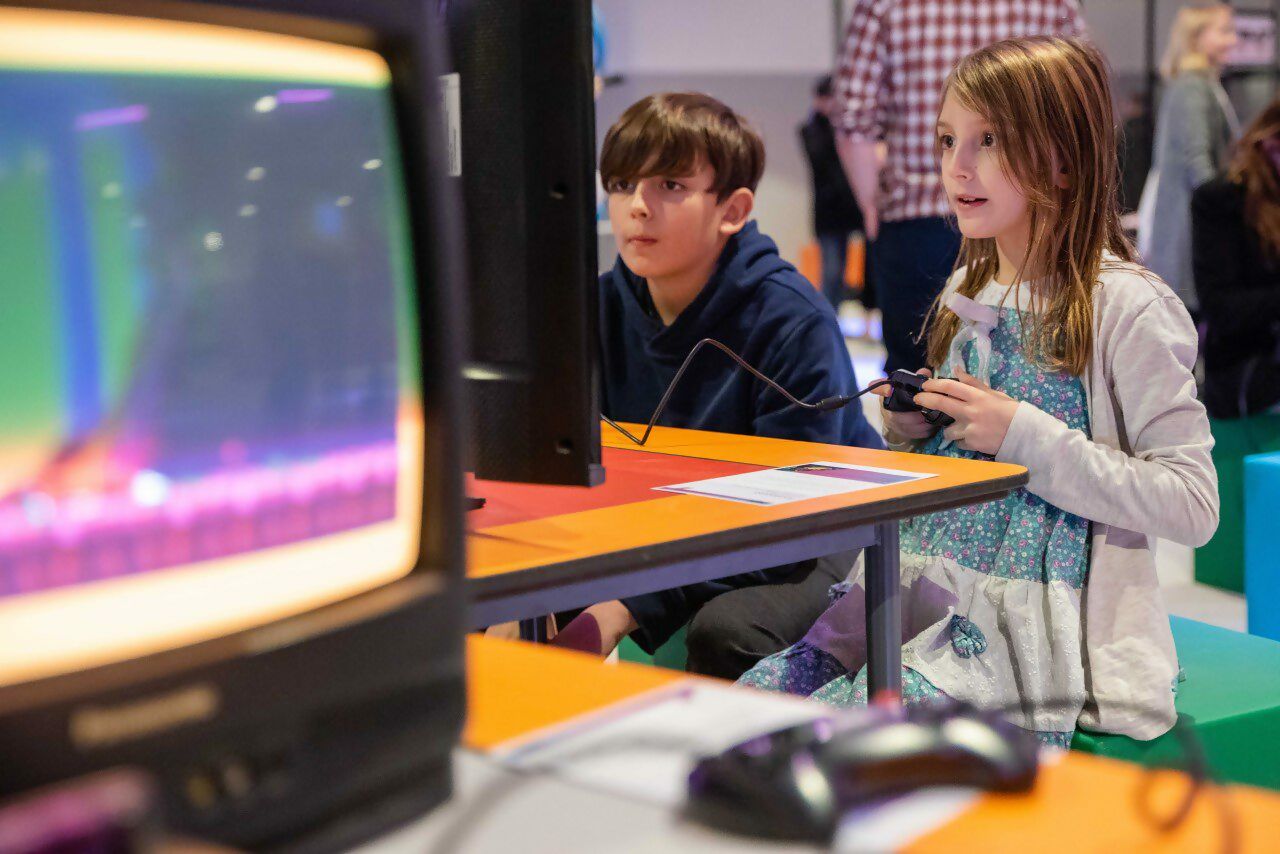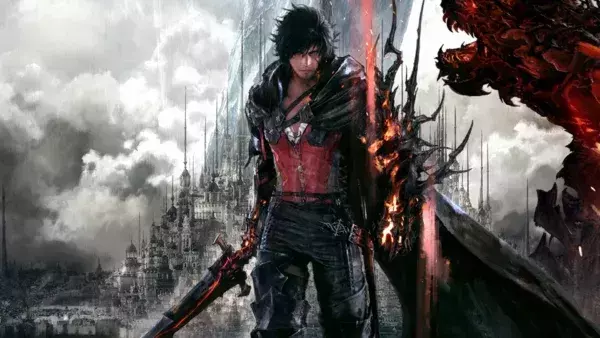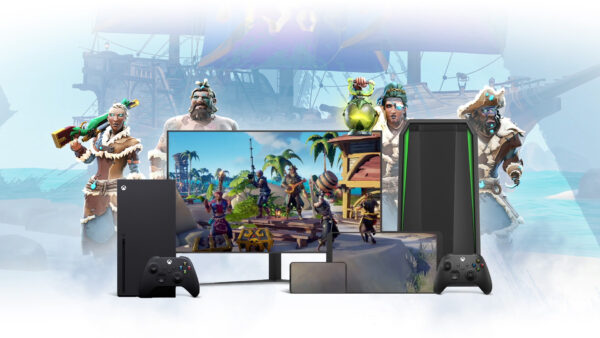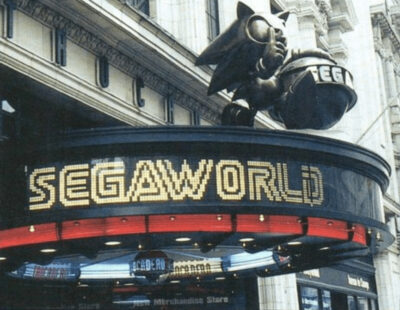
Since 1662, a copy of every published book has been deposited at the British Library. It’s a legal requirement that preserves the works of authors for future generations, and Iain Simons would be happy if there were a similar system created for video games.
“There’s no systemic, structured way for games to be preserved – none at all,” laments the co-founder and creative director of the National Videogame Museum (NVM) in Sheffield. “Unlike books, there’s no legal deposit, so I could release a game today and no official structure would ever know about it.”
This isn’t a unique situation. There’s no legal requirement for movie-makers to deposit their films nor musicians to hand over a copy of their every composition. Still, many people interested in video games are still keen to retain as much of its past as possible. “This magazine will be lodged with the British Library and my words during this interview will probably survive longer than the things I’m talking about,” Simons continues. Yet rather than call for a single vault of software and hardware, he and others believe the answer may lie elsewhere.
Step forward, then, the Videogame Heritage Society, or VHS for short. Led by the NVM, it aims to bring together organisations and private collectors involved in preservation to discuss the best way forward.
“No one can collect everything,” says Simons. “It just doesn’t make sense for the NVM, or frankly any museum, to put its arms around huge amounts of items and put it all in one place. Today, there are towns and cities across the UK which have museums, exhibitions, and collections of their own heritage that plot individual local stories. So the answer perhaps lies in a national collection that’s shared across a bunch of institutions rather than one trying to get everything, and what we’re now starting to think about is how we might coordinate a distributed collection.”

Iain Simons, co-founder and creative director at the National Videogame Museum, worries that we’re still in danger of losing gaming’s link to the past.
Manic rush
In many ways, this is a different approach from one Simons pursued in the past – primarily with the National Videogame Archive (NVA), which he helped spearhead in 2008. Created as a partnership between Nottingham Trent University and what was then called the National Media Museum in Bradford, it amassed a large collection and had the backing of industry figures before disaster struck just a few years later. “After the coalition government came to power, there was a massive bloodbath and loads of people involved in that project lost their jobs,” Simons recalls. “The collection still exists, but there was no capacity within the museum [now the National Science and Media Museum] to continue actively collecting. It was paused – although not formally – because there were simply no resources.”
To some extent, the NVA appeared to be the answer. As well as retaining the games themselves, the archive was amassing prototypes, early sketches, box art, advertising, and even mods and fan art. Aside from preserving, analysing, and displaying the products of the video game industry, it also sought to place them with their historical, social, political, and cultural contexts. But there were many problems to solve along the way. The NVA was keen to archive Manic Miner, and it finally tracked down the game’s developer, Matthew Smith, for permission, only to discover he didn’t actually hold the rights. Other games the organisation wanted to include had long been wiped or lost because past publishers didn’t believe their commercial life would extend much past a year or so. Video gaming may be a relatively young entertainment industry, but preservation is already a tricky business.
“Video game preservation can only succeed in the long term as a really large group effort,” Simons says. “It’s a massive scale problem. Some issues are technical; some are legal. There needs to be a coordinated approach, even though I don’t believe the VHS will ever be the panacea.”

The British Library has been archiving websites. Could it extend its powers to legally archiving digital copies of games?
All-embracing
It certainly helps that the VHS falls under the umbrella of a Subject Specialist Network (SSN) – the term given to a mesh of museums and membership bodies seeking to share advice and guidance about acquiring, preserving, and researching within specific areas. With the VHS, there’s a commitment to running online seminars, with one eye on an international conference about preservation somewhere down the road. There’s also a greater chance of talk turning to action.
“SSNs are a recognised structure and they allow knowledge of best practice to be shared,” explains Simons. “To be honest, I hadn’t heard of them before the idea of the VHS came into being – then I found out that there’d never been one for any sort of digital preservation, let alone video games, which was really surprising. We’re pleased to have plugged that gap!”
The VHS’ founder members include the Science Museum Group, The British Library, Museum of London, Centre for Computing History, and Bath Spa University as well as The Retro Hour Podcast and C64Audio.com. But what marks this network as different from many other SSNs is its insistence on having private collectors involved.
“So often you’ll find these networks are for official museums and heritage institutions, but the big thing about this one is that so much of the deepest knowledge about games lies with individuals and people who are massively passionate about a particular game or platform,” says Simons. He adds that VHS is free to join and has benefited from funding via the Art Fund. “This should be a place where you can easily go and find a bunch of other people who are interested and knowledgeable in that subject.”
To that end, an invite is being extended to “basically anyone who collects video games and wants to talk to other people who collect video games”, Simons tells us. “We all know there are so many people doing great stuff, but there’s not always a lot of coordination. That’s not a criticism. Everyone has just been busy and kind of getting on with it. But it’s good to bring people together.”

Animal Crossing: New Horizons proved that preserving the context of a video game and how it was played is as important as the game itself.
A balancing act
The hope is that the VHS becomes a “watering hole” of sorts, a forum in which ideas blossom and new projects take fruit. There’s a recognition among those taking part that museum curators and collectors are pulling in the same direction; that everyone is keen to avoid the heartache of the past in which some publishers and developers have thrown away design documents and early sketches as well as original cassettes and floppy disks.
Stories certainly abound of abandoned games being erased; of obscure fanzines pulped. But then you learn there’s a prototype ZX Spectrum at The Centre for Computing History in Cambridge, and that perhaps the only Amiga CD12000 drive in existence is located at the Retro Computer Museum in Leicester. “You also have individuals such as Mark Hardisty, who’s done some amazing work in Sheffield charting the history of Gremlin Graphics,” says Simons.
And it’s not just about preserving the past, either. Simons stresses that future games will one day form part of history, too, and steps need to be taken to consider those today. “One of the things we are looking at is the possibility of creating a coherent legal framework for publishers to be able to deposit assets,” says Simons. “Discussions have to be on a level that isn’t simply about nostalgia or on the lines of ‘Isn’t it a shame that you can’t play Table Top Tanks again?’. It has to be a discussion with legal, corporate, and commercial angles to it, and there needs to be an understanding that the people who make decisions aren’t the same people who make the games.”
A key word there is “legal”. We’ve already seen how some publishers react to ROMs old games appearing online. Nintendo, in particular, has taken some of the biggest of these sites to court: it recently won $2.1 million in damages in a case against RomUniverse. It highlights the balancing act between the need to preserve versus the commercial concerns of big companies. On one hand, those making digital copies are saving games from being lost to degradation – a particular problem for titles originally issued on disk and tape. Then again, publishers and developers have every right to keep a rein on their own intellectual property. Discussions within the VHS may yet help to resolve this situation.
Simons points to the recent issue in which Sony Interactive Entertainment announced plans to shutter the digital storefronts for the PS3, PSP, and Vita, leaving as many as 138 games unavailable for purchase (a situation it later largely backtracked from doing).
“The people deciding whether or not to turn off the PS3 servers aren’t bad people; they’re not trying to destroy games and make everybody sad – that’s not what is motivating them,” Simons says. “Their mandate is to run servers profitably, not to preserve old stuff. But unless these things can be reconciled and joined up, quite understandably, those servers will be turned off because the numbers show they’re wasting money.
“So this thing has to be reconciled. We’ve got to find a way to make things work that bridge two worlds. And I think it’s important that the preservation community does that with consistency in the language we use. We often wring our hands a lot and talk about how important this stuff is. But that isn’t going to answer the question being posed by a finance director who’s asking why a deeply unprofitable service is being operated. We’ve got to be able to breach that conversation, and I think people are really trying to come to the table with that.”

Cross-platform games mean preservation isn’t as simple as archiving a single copy of each title.
Finding their feet
At the same time, museums are facing financial pressures of their own, which could affect public preservation efforts in the future. The past 18 months have been tough, and most have had to rely on goodwill and grants. Who knows where the Retro Computer Museum would have been were it not for the generosity of an anonymous donor handing over £30,000 in May. “It was really touch and go for us too,” says Simons, still thankful that the National Videogame Museum received a £400,000 grant from the Arts Council of England’s Culture Recovery Fund last October. “We were at reduced capacity once we were allowed to reopen because of social distancing, and yet we’ve seen that the appetite for coming is there.”
Simons is also hopeful that the government may get involved in game preservation, but he isn’t holding his breath. “Their interest in preservation is yet to be declared,” he says, “but, you know, they cared enough about what we do to give us money from the Culture Recovery Fund.”
For now, the focus is on how to survive, then thrive, with a well-preserved collection that will benefit all. “A collector or museum should be able to find out where the design documents for Zool are located,” argues Simons. “It would be good to see a sharing of catalogues, and the VHS will hopefully enable that to happen because everybody’s already in a room and talking about it. We’ll see how things progress.”





